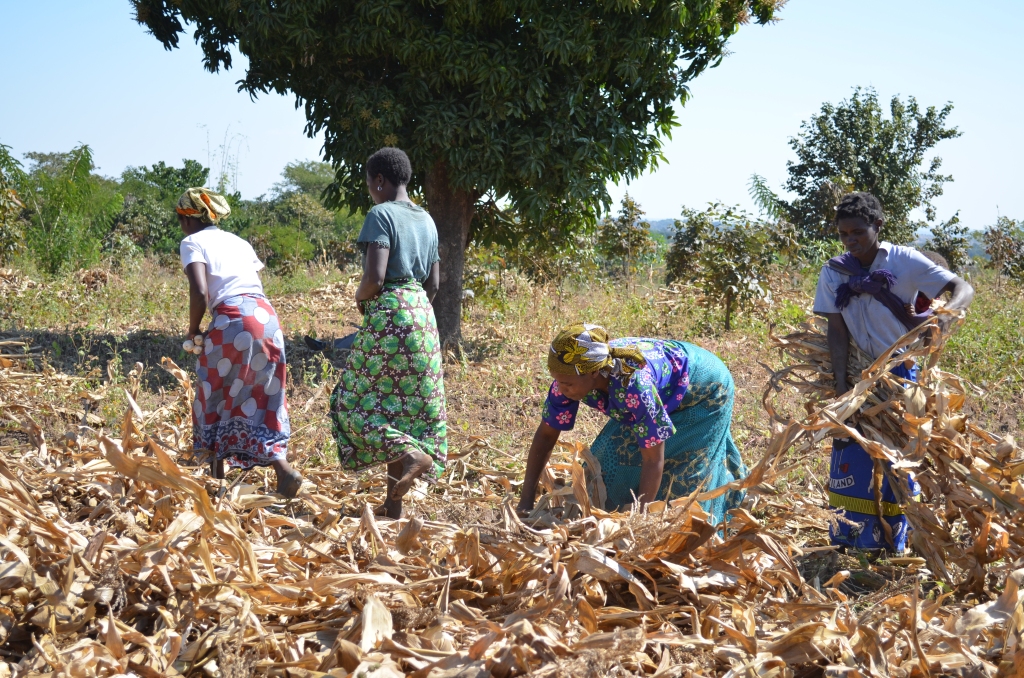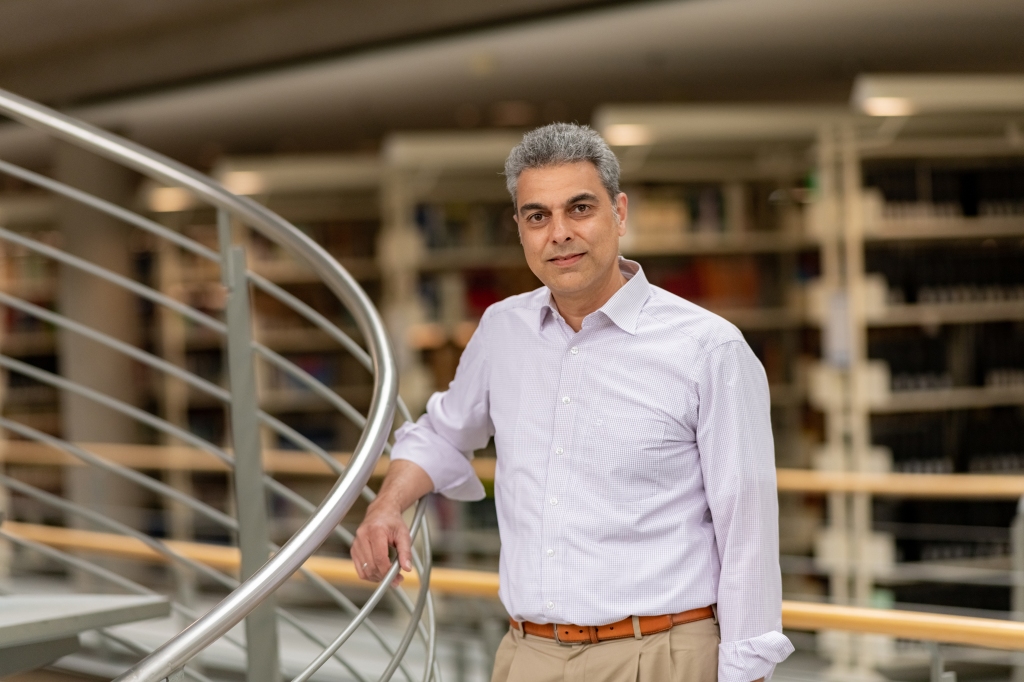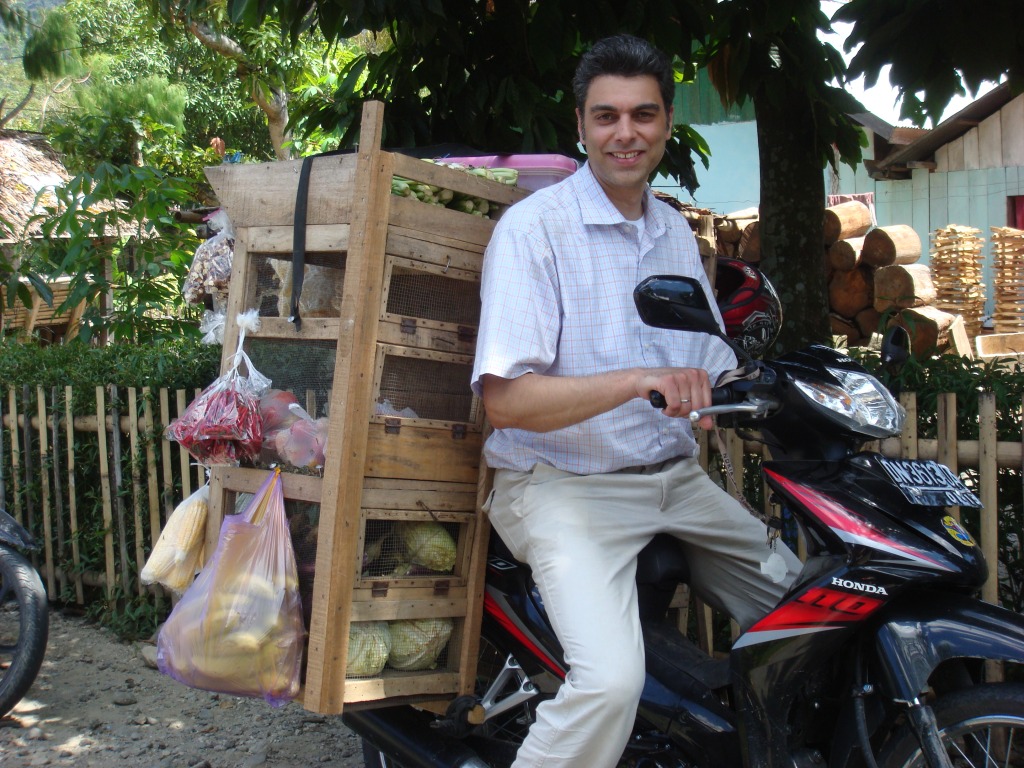Which of this year’s scientific findings of your group is your favorite one?
In several recent papers we analyzed to what extent the rapid spread of modern supermarkets in Africa influences people’s diets and nutrition. With primary data from Kenya and Zambia we identified various interesting effects. Smallholder farmers’ nutrition is clearly improved, as farmers can fetch higher prices for their harvest when selling in supermarket channels, leading to significant income gains. Urban households, on the other hand, use supermarkets primarily as consumers. Our findings show that shopping in supermarkets instead of traditional markets is associated with higher calorie and micronutrient consumption. Among the urban adult population, we observe that the spread of supermarkets contributes to rising rates of obesity, which is undesirable, as obesity increases the risk of diabetes and other chronic diseases. However, for children we find that supermarkets tend to reduce undernutrition, which is desirable. In a very recent paper, published just a few weeks ago, we combined nationally representative household data from South Africa with Google data on the exact locations of supermarkets, confirming many of the earlier findings. We hope and think that this research can help to design food system policies that support the positive and avoid the negative nutrition and health effects.
What kind of job where you wishing for as a child?
As a child I always wanted to become an airplane pilot. I was (and still am) fascinated by airports, long-distance travel, and far-away destinations. Even as a youth, this wish persisted and I had sent in my application to the Lufthansa Company. I was invited to an assessment center test and interview, but eventually did not get an offer. While frustrated at that time, from today’s perspective I am actually quite happy that I did not become a pilot, simply because being a professor of food systems economics is the most exciting and fulfilling job I can imagine.
Studying at a university was a fun time – but what’s the one thing you won’t miss?
There was nothing in my study time that I really hated, but I remember one not-so-nice anecdote related to my first seminar paper. At the undergraduate level, we never had to write seminar papers and even at the graduate level this was rare and mostly voluntary. I volunteered to write a paper in rural sociology and put together a few facts on the particular topic without any clue on how to write a good scientific text. The professor gave me a bad grade and told me: “you will never become a successful academic”. What a frustrating feedback. I learned two lessons from this anecdote. First, I believe that I now know how to write good academic texts. Second, I try to give constructive and encouraging feedback to my own students, even when the paper submissions are sometimes not so great.
How do you spend your time when you’re not working?
The great thing about being passionate about one’s job is that work never feels like work but rather like fun. This is definitely true for me. I love my work and therefore spend quite a bit of my time with work-related activities. But when I do not work, I love to hike with my family or do sports, particularly cycling and swimming. I also like cooking and good food. Currently, I am trying out many new vegetarian recipes, as my family and I switched to being flexitarians with very rare consumption of meat. We try to consume sustainably.
If you could choose one person to have a drink of your choice with, who would it be?
As we have several large interdisciplinary research projects in countries of Africa and Asia, at least before Corona times we also had many occasions of international travels jointly with colleagues, which certainly also involves one or two joint evening drinks at the hotel bar. I enjoy these informal meetings with colleagues a lot, not only because of the interdisciplinary discussions on research topics but also because of the interesting personal stories of very nice and like-minded colleagues. However, having said this, my favorite person for a joint drink anywhere and at all times is certainly my wonderful wife.




